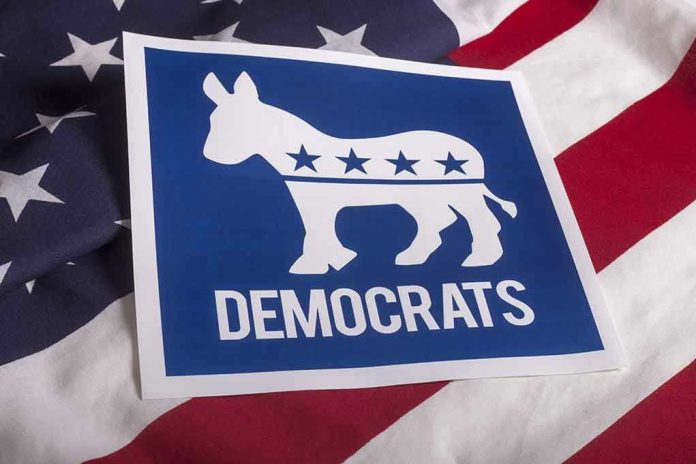
Voters are increasingly pointing fingers at Democrats for the “Schumer Shutdown” as the government stalls and public frustration mounts.
Story Highlights
- Voters start blaming Democrats, especially Schumer, for the ongoing shutdown.
- Progressive Democrats, like AOC, pressure Schumer with potential primary challenges.
- The shutdown has entered its third week with no formal negotiations underway.
- Republicans frame the shutdown as Democratic obstruction over health care demands.
Public Opinion Shifts
Recent polling data reflects a notable shift in public opinion, with many voters now blaming Democrats for the federal government shutdown. This shift arises as Senate Majority Leader Chuck Schumer, under pressure from progressive Democrats, stalls negotiations over government funding. The demand for permanent ACA subsidies and Medicaid reforms has become a sticking point, and the public’s patience is wearing thin as essential services are disrupted.
The shutdown, which began on October 1, 2025, after Senate Democrats blocked a House-passed Continuing Resolution (CR), continues to leave federal employees unpaid and disrupt crucial services like military pay and food assistance programs. As the shutdown stretches into its third week, partisan divisions deepen, and public dissatisfaction grows.
Progressive Pressure and Political Dynamics
Internal pressures within the Democratic Party add complexity to the shutdown narrative. Progressive Democrats, led by figures like Alexandria Ocasio-Cortez, have raised the stakes by threatening primary challenges against Schumer. This insurgency has forced Schumer to navigate a delicate balance between maintaining party unity and addressing progressive demands for sweeping health care reforms.
Schumer’s leadership faces scrutiny from both moderates and progressives, while Republicans, led by House Speaker Mike Johnson, capitalize on the situation by emphasizing Democratic obstruction. The narrative of the “Schumer Shutdown” has gained traction, complicating the Democrats’ position as they struggle to present a unified front.
Consequences of the Shutdown
The implications of the ongoing shutdown are significant and multifaceted. In the short term, federal services remain disrupted, causing economic uncertainty and heightened public frustration. Long-term effects could include an erosion of public trust in government and increased polarization within the Democratic Party, potentially leading to primary challenges and shifting voter sentiments.
Key stakeholders, including federal employees, military personnel, and vulnerable populations relying on government assistance, bear the brunt of the shutdown’s impact. Economic consequences extend to areas like small business loans and disaster relief, leaving affected communities in a state of uncertainty.
Expert Opinions and Future Outlook
Policy analysts point to the shutdown’s roots in unresolved disputes over health care and spending, with both parties leveraging the crisis for political gain. Political scientists highlight the unusual intra-party dynamics among Democrats, noting the influence of progressive insurgency on leadership decisions. Despite the shifting blame game, polling data remains divided, with some voters still attributing responsibility to Republicans and the President.
As the shutdown persists, the potential for resolution hinges on the willingness of both parties to compromise. However, with entrenched positions and little progress in negotiations, the path forward remains uncertain. The shutdown’s outcome will likely influence future political dynamics, particularly within the Democratic Party, as leaders navigate the challenges of maintaining unity amidst diverse ideological pressures.







